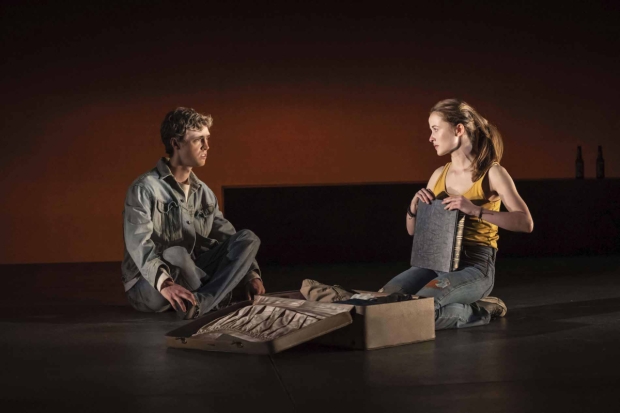The Breach at Hampstead Theatre – review
Sarah Frankcom directs her first Hampstead production

© Johan Persson
There's a good essay about neo-liberalism in the programme for this premiere of a play by Naomi Wallace. The problem is that the play is only tangentially about neo-liberalism – and it is not in itself very good.
It takes four teenagers – the Diggs siblings, Jude and Acton, and Acton's friends-cum-protectors Frayne and Hoke – who live in Louisville, Kentucky, and crafts two parallel sets of scenes set in 1971 and 1991 which tell their story. The two groups are played by different actors, and the style is self-consciously poetic. Another programme essay refers to Shakespeare's sonnet structure underpinning the writing (hard to feel) and a bare raked set by Naomi Dawson provides the basement setting.
What unfolds is a story about exploitation. The Diggs are impoverished; their father has died in an accident on a building site owned by Hoke's father, their mother is working two jobs just to pay the bills. Meanwhile Hoke's family can afford to buy him a swanky car. Acton, young and asthmatic, needs the protection of Hoke and Frayne to survive bullying at school; they make ever escalating pacts to demonstrate their commitment to each other, to Top My Love.
The entire thing culminates in an assault which changes the course of all their lives. I won't give away exactly what happens, but it is as implausible as everything else in the play, circling around important issues of consent without ever, for a second, being truly believable.
To give another example: we are asked to accept that one of Jude and Acton's favourite games – one that gives them comfort – is to enact the sequence when their father falls off a roof to his death, imagining the thoughts that go through his head. It gives the production, with Jennifer Jackson's graceful choreography and Rick Fisher's elegant lighting, the chance to build a sequence where they tumble down the stage together. But the idea that this is a salve for trauma feels utterly preposterous.
The whole play is like that. It's set where Wallace grew up, yet could be happening on the moon for all the texture of life it puts on stage. The family keep talking about leaving for Florida to live with their grandmother, which seems like a solution for their troubles, but it is always presented as a bad thing, a decision that is never truly explained.
Over and over again, it substitutes style for substance and barely bothers to make the protagonists anything more than their characteristic stance. Jude is brave and determined, Hoke sneery, Frayne needy, and Acton weak. The young actors playing them deserve all the praise for their ability to bring them to life with so little to work on. Shannon Tarbet is particularly impressive as the young Jude, brow furrowed with intensity. Stanley Morgan makes an impressive professional debut as the troubled Acton.
The cast's excellence and Sarah Frankcom's sensitive direction make the production slip smoothly by. But the play itself doesn't deserve their care.












